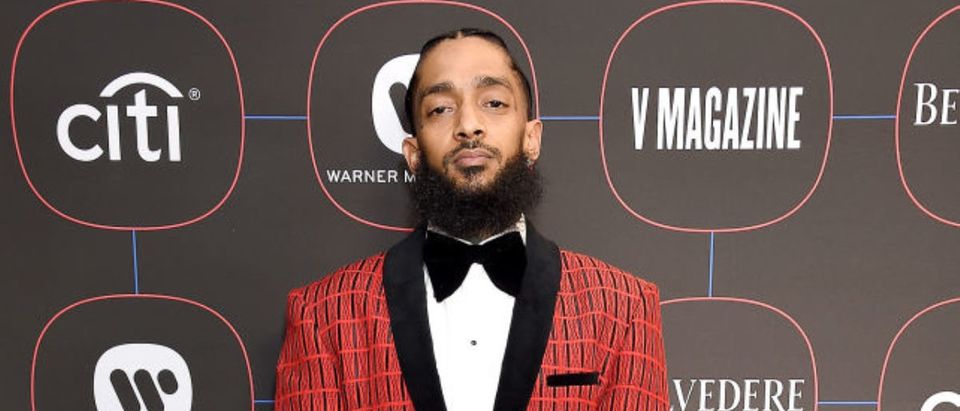Please, stop making excuses for hip-hop.
I have spent most of my life pretending the good in hip-hop makes the bad more acceptable. It’s okay to listen to gangster tales, I thought, because that’s an authentic perspective on inner-city American life. And I would point to positive rap music to argue that hip-hop is complicated, and eventually balances itself out.
But making such excuses has real consequences. The negative elements of hip-hop need to be called out for the destructive influences they are. We should have zero tolerance in our culture for glorifying criminality and seeing young men hurt themselves and others.
It has become customary for journalists and pundits to draw connections between the messages young men consume and violence. When a jihadist or white supremacist picks up a gun, we blame the rhetoric around him. Just last month, coverage of the terrorist attack in Christchurch, New Zealand blamed anti-immigrant and anti-Muslim talking points from politicians and public figures. We similarly sift through the messaging consumed by school shooters, believing such insights might help us explain why a young man would point a gun at his classmates.
If rhetoric is relevant to violence, there’s no reason we shouldn’t also be concerned about hip-hop, a multi-billion dollar industry built in part on young men talking about joining street gangs and shooting each other. This rhetoric peddled by record labels and publishing companies should be just as concerning as any other way criminality is tolerated or encouraged.
Every year, inner-city crime claims thousands of American lives, multiples more than terrorism or school shootings. Yet, critically examining the relationship between hip-hop and gang violence is out of favor among journalists and pundits. Those atop ivory towers don’t dedicate the same time and energy to discuss gangs as they do other violent movements.
This past Sunday night, the world was reminded of why making excuses for hip-hop is so misguided. Los Angeles rapper Nipsey Hussle (Ermias Asghedom) was killed in front of his own clothing store. Additional details are still coming to light, but what has been clear since the news first broke is the heartbreak surrounding his death. Celebrities have expressed their condolences, and Nipsey’s admirers have shed tears on social media in his remembrance.
For hip-hop fans, seeing a popular artist’s life cut short is tragically familiar. Death by gunshot is part of the folklore surrounding Tupac Shakur and Biggie Smalls, and more recent hip-hop superstars like XXXtentacion.
Nipsey’s death stands out in part because he looked to be a potentially transformational figure. He was a uniquely talented businessman, able to make a career for himself as an independent artist despite the music industry’s changing business models. He shared career advice widely. He also saw himself as carrying a responsibility to show his listeners the greatness he and others like him are capable of, as exemplified by lyrics on his final album Victory Lap: “See it’s a couple n****s every generation/ That wasn’t supposed to make it out but decode the matrix/ When they get to speak it’s like a coded language/ Reminds n****s of their strength and all the stolen greatness.”
Unfortunately, Nipsey wasn’t always his best self. He often added to hip-hop’s chaos with his own gangster tales. Nipsey’s death fits into a self-authored narrative of his life, in which he had ties to organized crime and violence was a regular occurrence.
Nipsey at his best and his worst represented the tensions at the heart of hip-hop: hope for a better world mixed with an unhealthy embrace of immoral behavior. Many of Nipsey’s listeners and observers — myself included — hoped he would be an example of how to overcome those tensions and unapologetically stand for what’s right. He showed flashes of moral strength in his music and interviews, but those bright spots have now been dimmed.
Many of us who mourn Nipsey today made excuses for him while he was alive: we streamed his music, danced to his songs, rapped along to his lyrics and watched his videos while turning a blind eye to the consequences of this entertainment. We failed to call out the destructive influences around Nipsey and in Nipsey. Now he is gone.
Maybe it wouldn’t have made a difference if we stopped buying Nipsey’s gangster music or pushed him to consistently be his best self. However, if we stopped making excuses for hip-hop, at least we could mourn Nipsey with a clear conscience and say we tried to save him from a cycle of violence claiming so many.
Jamil Jivani (@JamilJivani) is the author of Why Young Men: The Dangerous Allure of Violent Movements and What We Can Do About It, available June 2019 from All Points Books.
The views and opinions expressed in this commentary are those of the author and do not reflect the official position of The Daily Caller.


